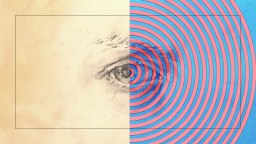Einstein’s Unfinished Revolution: The Search for What Lies Beyond the Quantum
LEE SMOLIN: People often speak of the beginner's mind, this wonderful ability of people, when they come new to a subject, to have an idea, to see something that's novel, that everybody else has missed that leads to a breakthrough. And this is a thing of beauty. I've experienced it myself, which I am very fortunate to say. And I have observed it a few times in my career in other people's work.
But here is the thing that I think is not true. What's not true is that it's tied, necessarily, to age so that you only get one shot. There is a thing that physicists often say. You see, all these great discoveries, like Newton-- Newton was 22, and then 24. Einstein was 26. Heisenberg was 23. Bohr was 28, et cetera.
So there is this tendency to say, you've got to have not only a fresh mind, but a young mind. And let me tell you what Chandrasekhar, who was one of the great astrophysicists of the 20th century-- indeed, of every time-- said to me when he was in his late 70s. He said, most people say that you only get one chance, and then you-- then you get in the way. Then you're useless. But he didn't think that was true, and it wasn't true in his own life.
You just had to change your subject every 10 years. So every 10 years, Chandra took the last 10 years of work, wrote a textbook, put all the calculations and all his notes in a box, put them on a shelf, and walked out and looked for something else to study. Somebody else in the domain of physics and astronomy and so forth. Because that's what he was interested in. But something completely different.
And then 10 years later, he was the master of a field. He put-- he wrote the book, he put it in a box. He put it on the shelf. And he was still doing this when he was in his late 70s, and indeed, into his 80s. And so I think it's very important to take Chandrasekhar seriously and change.
In my own life, I have always wanted to work on quantum gravity, and I've always wanted to work on quantum foundations. And I even have some themes that go through most of my thinking, most of my work. But I change direction. I change point of view. I change approach. That's why I'm not -- unlike Chandrasekhar who is my dear, dear, close friend, I don't stay on the same subject.





